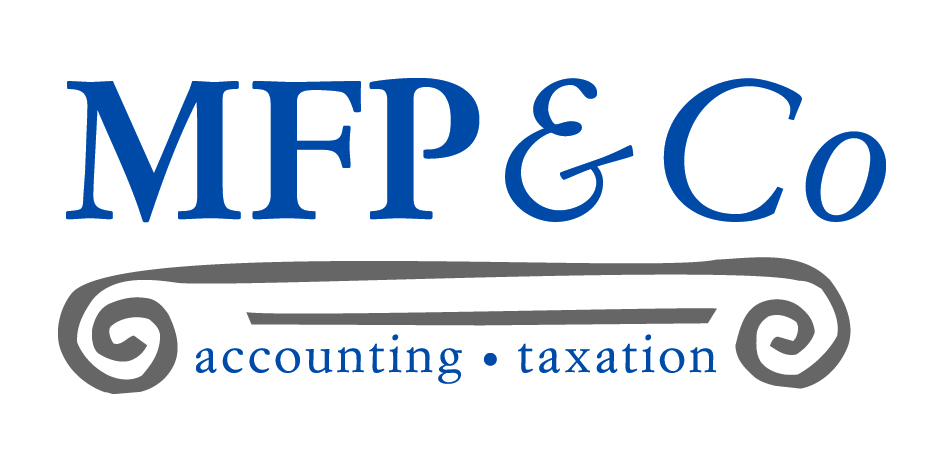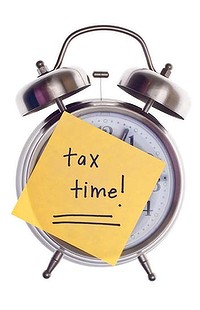Newsletter
ATO Targeting Work Related Expense Claims
- Monday, 01 September 2014 06:16
This year the Australian Taxation Office (ATO) are paying particular attention to a range of industries and occupations including: 
- building and construction project managers and supervisors;
- building and construction labourers; and
- sales and marketing managers.
The ATO focus on occupations that have a pattern of large or rising work-related expense claims and on work-related expense claims that did not fit the pattern of a particular occupation.
The ATO are looking closely at overnight travel expense claims as well as claims for transporting bulky tools and equipment. Building and construction workers are incorrectly claiming travel expenses for driving to work. Travel between home and workplace cannot normally be claimed. The travel expense is only deductible if it can be shown that an employer requires a worker to carry bulky equipment in their vehicle as part of their job and that there is no alternative storage solution at the workplace. If the employer does provide secure storage, then the deduction cannot be claimed.
The ATO is also looking at work expenses claimed incorrectly by sales and marketing managers for mobile phone calls based on the time spent at work rather than on work-related use.
Make sure you have incurred the work-related expense in the year you are claiming it, the deduction is allowable and where required, have the appropriate records (e.g. invoices, receipts, log books and/or diary information) to substantiate your work related expense claims.
Medicare Levy Increase to Fund National Disability Insurance Scheme
- Monday, 01 September 2014 06:16
From 1 July 2014, the Medicare levy will increase from 1.5% to 2% of taxable income for the 2014-2015 income year and later years. The money raised from the increase will be placed into a National Disability Insurance Scheme fund (Disability Care Australia).
This increase will also mean consequential changes for legislation that reference the Medicare levy rate. You may be affected if you are:
- individual taxpayers (the Medicare levy rises from 1.5% to 2%);
- individuals and trustees who are in the pay as you go instalments system;
- trustees with liabilities;
- employers with fringe benefits tax impacts (FBT rate will increase from 46.5% to 47% and gross up rates will increase); and
- superannuation funds (self-managed super funds, funds regulated by the Australian Prudential Regulation Authority and retirement savings account).
INDIVIDUAL INCOME THRESHOLDS
If your taxable income is equal to or less than your lower threshold amount, you do not have to pay the Medicare levy. If you’re taxable income is greater than your lower threshold and less than or equal to your upper threshold amounts, you pay only part of the Medicare levy:
- If you are eligible for the seniors and pensioners tax offset (SAPTO) – lower threshold for 2012-2013 is $32,279 and upper threshold for 2012-2013 is $37,976.
- All other taxpayers – lower threshold for 2012-2013 is $20,542 and upper threshold for 2012-2013 is $24,168.
WHAT IS DISABILITY CARE?
From 1 July 2019, the scheme will support more than 400,000 Australians with a disability, their families and carers. It will help pay for carers, to give parents of children with a disability a break. It will help pay for new wheelchairs tailored to individual needs. It will fund home modifications to help people with a disability move around easier. It will fund early intervention services children, like physiotherapy and speech pathology. The increase to the Medicare levy equates to an extra dollar a day for an average income earner. The change would collect $20 billion in its first five years.
Business Name
- Monday, 01 September 2014 06:16
A business name is a name or title under which a person or entity conducts a business. In Australia, unless you fall within an exemption (refer to ASIC Regulatory Guide 235), you must register your business name with ASIC. It is a legal obligation if you plan to carry on business or trade in Australia using a name other than your own. 
Exceptions to this include:
- if you are operating as an individual and your operating name is the same as your first name and surname;
- if you are in a partnership and your operating name is the same as all of the partners' names; and
- if you are an already registered Australian company and your operating name is the same as your company's name.
In order to register your business name with ASIC you must have an Australian Business Number (ABN) or an ABN application reference number and you must make sure the proposed business name is available to register. Registration periods are for either one year ($33) or three years ($76).
Registration doesn't provide exclusive ownership of your business name or preventing other people from being able to register and use similar names. Generally, the only way to get exclusive use of a particular business name is to register it as a trade mark.
CANCELLING YOUR BUSINESS NAME
If you've got a business name that you don't use, you should consider cancelling it. Cancelling your business name removes your current details from the Business Names Register and will make it available for others to use and in addition avoid reminder notices being sent from ASIC.
You need to be aware that when you cancel your ABN, the business name is not automatically cancelled by ASIC and you still need to cancel your business name through ASIC.
If you've sold or handed over your business to a new owner, and the business name was part of the agreement, you'll need to transfer it. Transferring the business name reserves the name for the new owner, so no one else can register it.
Key Tax Dates
- Tuesday, 01 July 2014 23:21
15 JANUARY 2014 
• Income tax return for taxable large/medium business taxpayers as per latest year lodged (all entities other than individuals) due date for lodging, unless required earlier.
• Payment for companies and super funds was due 1 December 2013. Payment for trusts in this category is due as per their notice of assessment.
21 JANUARY 2014
• December 2013 monthly activity statement except for small business clients who report GST monthly and lodge electronically using a registered agent.
28 JANUARY 2014
• Super guarantee contributions for Quarter 2 (October – December 2013) are to be made to the fund by this date. Employers who do not pay minimum super contributions for Quarter 2 by this date must pay the super guarantee charge and lodge a Superannuation guarantee charge statement - quarterly (NAT 9599) with the ATO by 28 February 2014. Remember, the super guarantee charge is not tax deductible.
21 FEBRUARY 2014
• December 2013 monthly activity statement - due date for lodgement and payment.
• January 2014 monthly activity statement - due date for lodgement and payment.
28 FEBRUARY 2014
• Quarter 2 activity statements (October - December 2013) - due date for lodgement and payment (all lodgement methods).
• Income tax return for non-taxable large/medium business taxpayers as per latest year lodged (all entities other than individuals) due date for lodging.
• Self-managed superannuation fund annual return for newly registered self-managed super funds (SMSF) is due on this date for lodgement and payment. You need to ensure you leave enough time for the audit report to be completed to enable lodgement of the SMSF annual return by the due date.
• Annual GST return or information report if taxpayer does not have a tax return lodgement obligation (if taxpayer has a tax return obligation, this return/report must be lodged by the lodgement due date of the tax return).
• Superannuation guarantee charge (SGC) statement - quarterly and paying the super guarantee charge for Quarter 2 (October – December 2013), if the employer did not pay enough contributions on time.
21 MARCH 2014
• February 2014 monthly activity statement – due date for lodgement and payment.
31 MARCH 2014
• Income tax return for companies and super funds with total income in excess of $2 million in the latest year lodged (excluding large/medium business taxpayers) – due date for lodging, unless due earlier. Payment for companies and super funds in this category is also due by this date.
Newsletter Signup
Receive FREE information and advice on Accounting & Taxation every Quarter
SignupArchive
- 4th Quarter 2024 (8)
- 3rd Quarter 2024 (9)
- 2nd Quarter 2024 (9)
- 1st Quarter 2024 (11)
- 4th Quarter 2023 (11)
- 3rd Quarter 2023 (9)
- 2nd Quarter 2023 (7)
- 1st Quarter 2023 (8)
- 4th Quarter 2022 (9)
- 3rd Quarter 2022 (8)
- 2nd Quarter 2022 (10)
- 1st Quarter 2022 (9)
- 4th Quarter 2021 (9)
- 3rd Quarter 2021 (8)
- 2nd Quarter 2021 (9)
- 1st Quarter 2021 (7)
- 4th Quarter 2020 (8)
- COVID-19 STIMULUS NEWSLETTER (8)
- 3rd Quarter 2020 (7)
- 2nd Quarter 2020 (9)
- 1st Quarter 2020 (9)
- 4th Quarter 2019 (8)
- 3rd Quarter 2019 (8)
- 2nd Quarter 2019 (7)
- 1st Quarter 2019 (8)
- 4th Quarter 2018 (7)
- 3rd Quarter 2018 (8)
- 2nd Quarter 2018 (8)
- 1st Quarter 2018 (8)
- 3rd Quarter 2017 (7)
- 2nd Quarter 2017 (7)
- 1st Quarter 2017 (7)
- 4th Quarter 2017 (8)
- 4th Quarter 2016 (7)
- 3rd Quater 2016 (7)
- 2nd Quater 2016 (7)
- 1st Quarter 2016 (8)
- 4th Quarter 2015 (6)
- 3rd Quarter 2015 (6)
- 2nd Quarter 2015 (8)
- 1st Quarter 2015 (6)
- 4th Quarter 2014 (7)
- 3rd Quarter 2014 (8)
- 2nd Quarter 2014 (7)
- 1st Quarter 2014 (8)
- 4th Quarter 2013 (7)
- 3rd Quarter 2013 (6)
- 2nd Quarter 2013 (9)
- 1st Quarter 2013 (8)
